"This constant lying is not aimed at making the people believe a lie, but at ensuring that no one believes anything anymore. A people that can no longer distinguish between truth and lies cannot distinguish between right and wrong. And such a people, deprived of the power to think and judge, is, without knowing and willing it, completely subjected to the rule of lies. With such a people, you can do whatever you want. The aim of totalitarian education has never been to instill convictions but to destroy the capacity to form any."
Hannah Arendt | (1906-1975), deutsche Historikerin und Philosophin. (Note: It appears that this quote may not be entirely from Hannah Arendt or may be partially composed. However, some parts of it are authentic.)
"Dieses ständige Lügen zielt nicht darauf ab, dass die Menschen eine Lüge glauben, sondern darauf, dass niemand mehr etwas glaubt. Ein Volk, das nicht mehr zwischen Wahrheit und Lüge unterscheiden kann, kann auch nicht zwischen richtig und falsch unterscheiden. Und ein solches Volk, der Denk- und Urteilskraft beraubt, ist, ohne es zu wissen und zu wollen, völlig der Herrschaft der Lüge unterworfen. Mit einem solchen Volk kann man machen, was man will. Das Ziel der totalitären Erziehung war es nie, Überzeugungen zu vermitteln, sondern die Fähigkeit, sich welche zu bilden, zu zerstören."
Useful and helpful links
On Fake Hannah Arendt Quotations by Roger Berkowitz
A quotation attributed to Hannah Arendt has been floating around various social media sites. The apparently altered quotation is:
"This constant lying is not aimed at making the people believe a lie, but at ensuring that no one believes anything anymore. A people that can no longer distinguish between truth and lies cannot distinguish between right and wrong. And such a people, deprived of the power to think and judge, is, without knowing and willing it, completely subjected to the rule of lies. With such a people, you can do whatever you want." -Hannah Arendt
I’ve received numerous emails in the last month asking for the provenance of this quotation. At first, I looked, since to be honest, the spirit of the quote is very much in line with Arendt’s own thought. But as far as I can tell, Hannah Arendt never said this or wrote this. She did, however, say many similar things. Which begs the question: Why would someone create a fake quotation when so many real ones express a similar viewpoint? And, does such an altered quotation matter?
To answer this question, it is important to first look at the quotations that likely serve as the source for the fake aphorism.
The closest in spirit and content, and also the most easily available, is from an interview with Roger Errera in 1974, what turned out to be Hannah Arendt’s last public interview. Arendt spoke about the importance of a free press in an era of mass manipulation of truth and public lying: She said:
"The moment we no longer have a free press, anything can happen. What makes it possible for a totalitarian or any other dictatorship to rule is that people are not informed; how can you have an opinion if you are not informed? If everybody always lies to you, the consequence is not that you believe the lies, but rather that nobody believes anything any longer. This is because lies, by their very nature, have to be changed, and a lying government has constantly to rewrite its own history. On the receiving end you get not only one lie—a lie which you could go on for the rest of your days—but you get a great number of lies, depending on how the political wind blows. And a people that no longer can believe anything cannot make up its mind. It is deprived not only of its capacity to act but also of its capacity to think and to judge. And with such a people you can then do what you please."
The key point in Arendt’s statement is that as lies multiply, the result is not that the lie is believed but that people lose faith in the truth and are increasingly susceptible to believe anything.

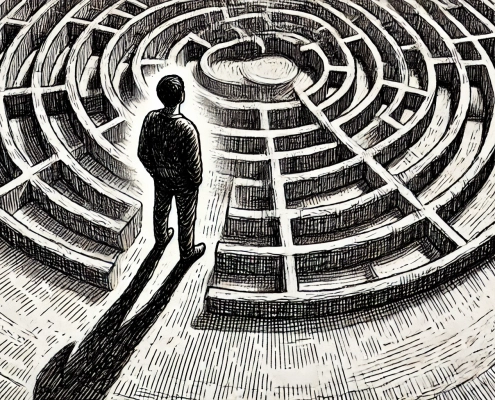
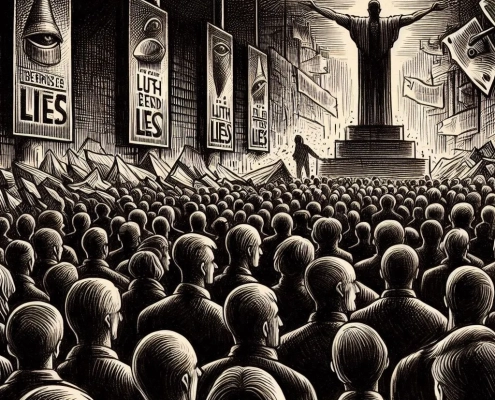
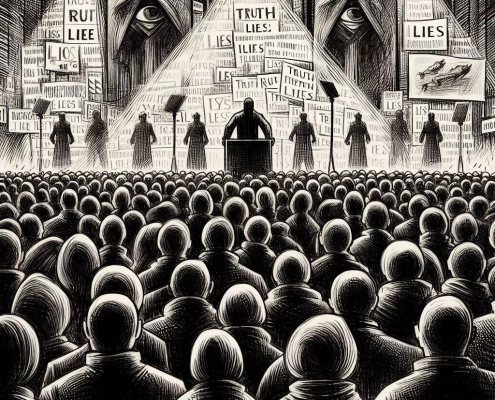
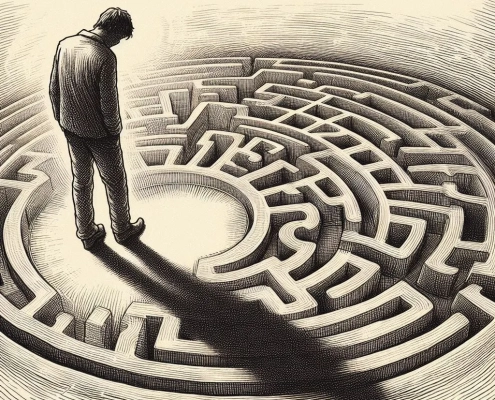
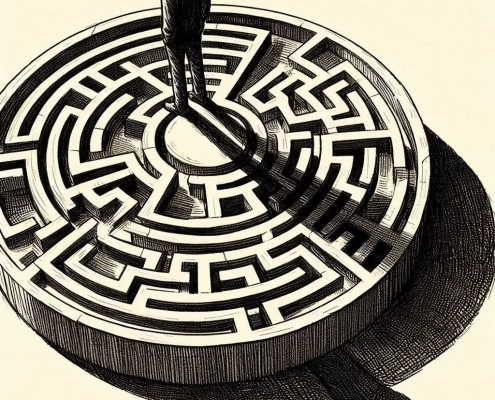



Leave a Reply
Want to join the discussion?Feel free to contribute!